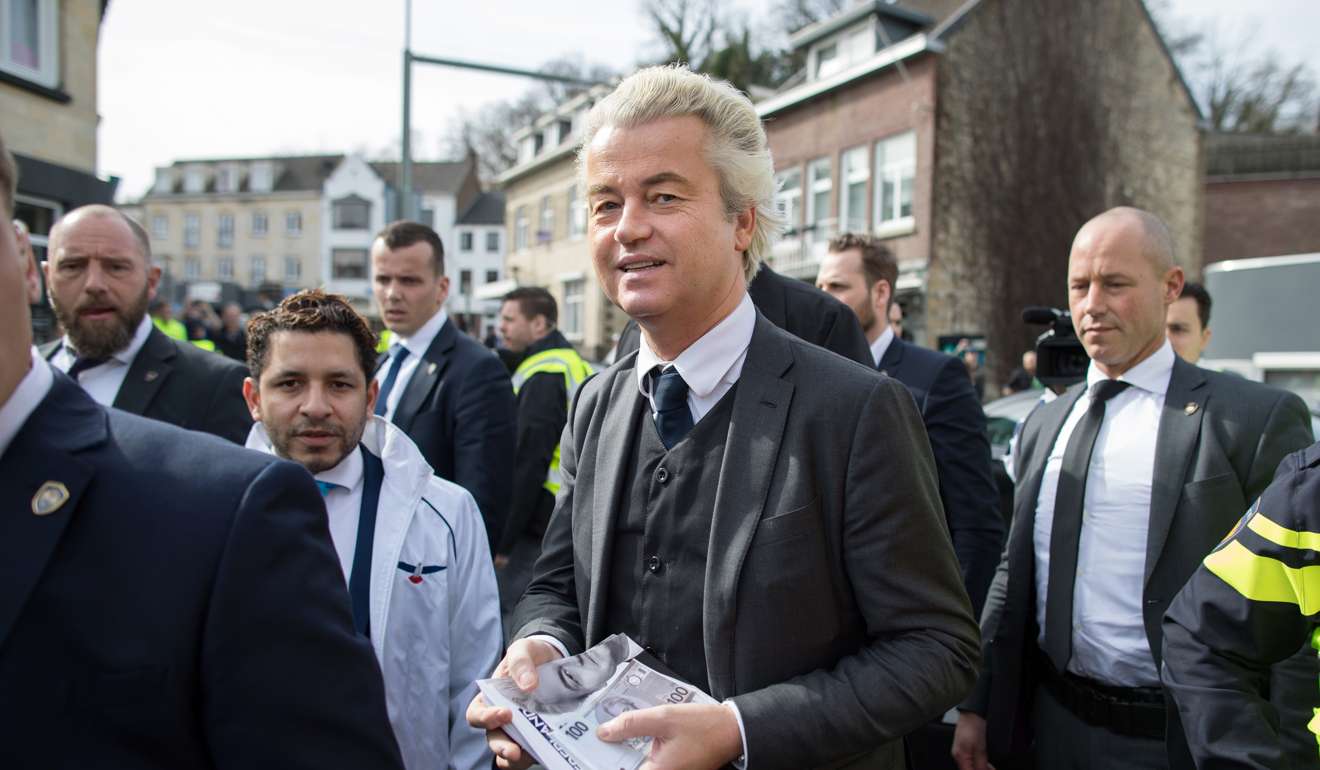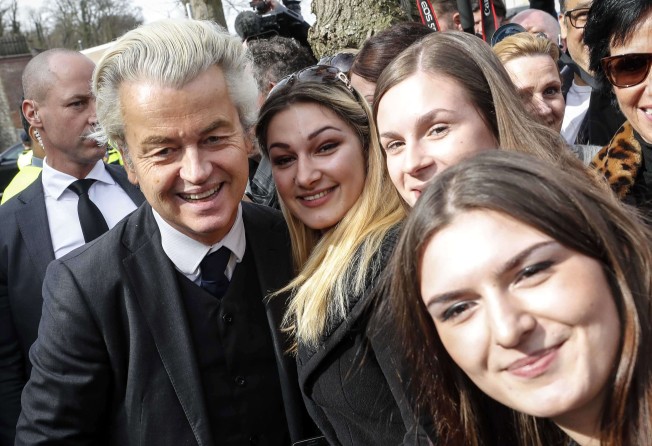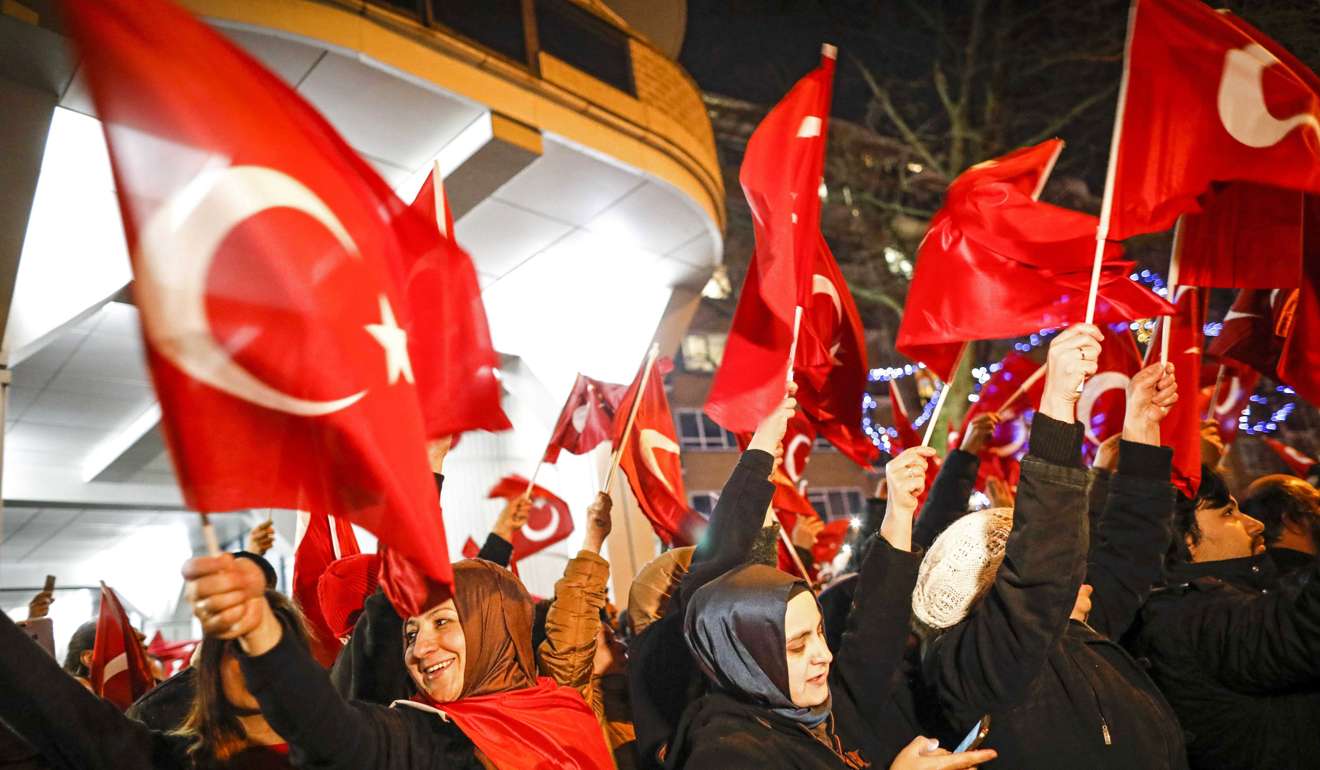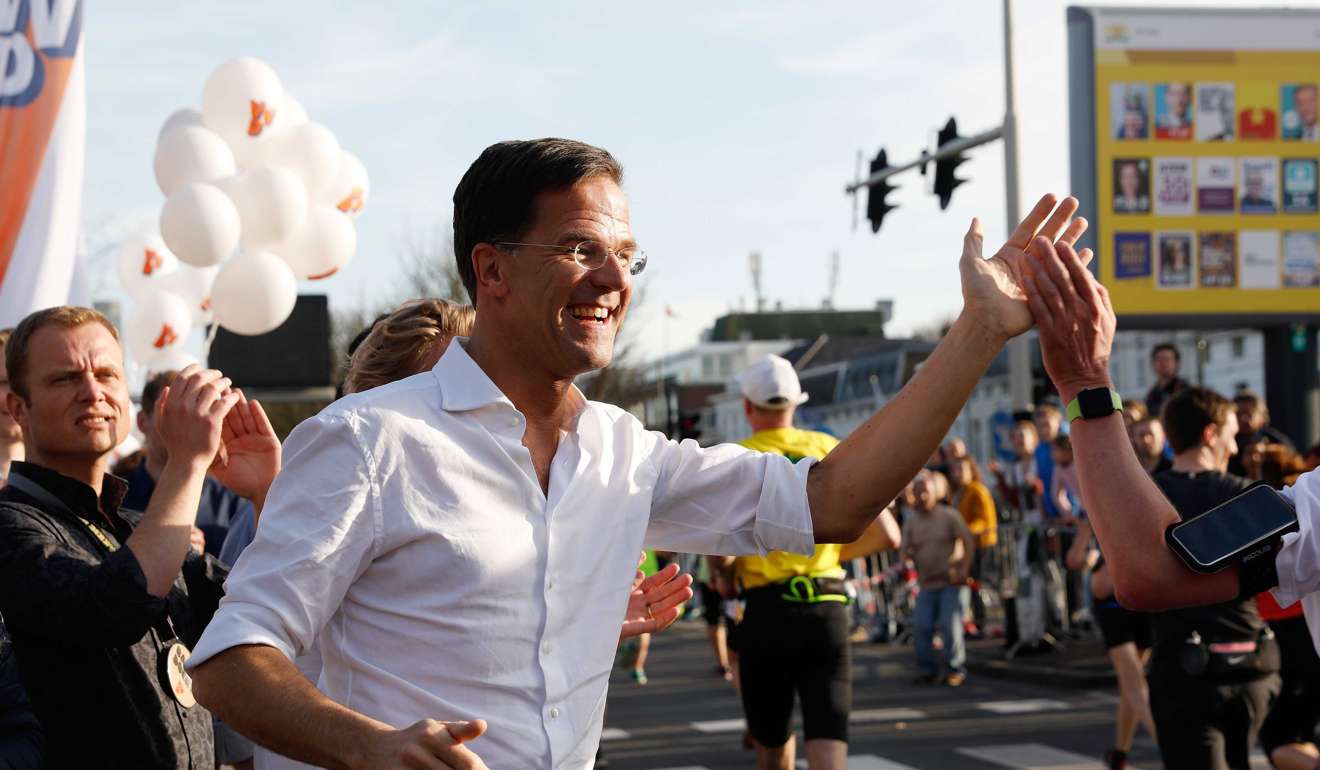
Row with Turkey threatens to upend Dutch vote, playing into hands of far-right’s Wilders

With campaigning in the crucial Dutch elections reaching fever pitch, and the far-right poised to make huge gains, analysis of the race has been upended by a diplomatic row with Turkey.
As politicians criss-crossed the country ahead of Wednesday’s vote, Turkish and Dutch leaders traded accusations and ties sank to new lows after The Netherlands banned Turkish ministers from a pro-Ankara rally in Rotterdam.
Political analysts said the international incident could benefit both Prime Minister Mark Rutte’s Liberals and the anti-Islam Freedom Party (PVV) of populist Geert Wilders. But the upshot may be to re-energise Wilders’s campaign just as it appeared to be fading.
“The cabinet has shown political decisiveness,” said Kees Aarts, professor of political institutions and behaviour at the University of Groningen. “But when you add everything up, what happened will clearly help Wilders ... it’s his main theme that’s at stake now.”

After weeks of flirting at the top of the polls, Wilders had recently seen his ratings slip and was predicted to come second with between 19 and 23 seats, according to the latest surveys. Rutte’s Liberals (VVD) were predicted to return as the largest party in the 150-seat parliament scooping up between 23 to 27 seats, according to the latest aggregated polls. But that would be well down from 40 VVD MPs in the outgoing lower chamber.
What happened will clearly help Wilders ... it’s his main theme that’s at stake now
The election is being closely watched as a bellwether of the rise of populist and far-right parties ahead of other national votes in Europe later this year.
Known for his incendiary anti-Islam rhetoric, the peroxide-blonde Wilders has vowed to close the country’s borders to Muslim immigrants, ban the Koran and shut mosques.
If he emerges as one of the largest parties in parliament he may be a difficult voice to ignore.
Already Rutte, in a bid to sap support from Wilders, has called on immigrants to adapt to Dutch values or leave.
The row with Turkey, “emphasises this cultural divide, the cultural issues in the elections,” said analyst Monika Sie Dhian Ho, director of the Clingendael Institute think-tank.
“It forces the more established parties to also run a campaign in this cultural dimension, rather than in the traditional left-right dimension,” she said.

“I’m fighting very hard to win these elections,” Rutte told reporters as he campaigned in The Hague on Sunday. “Now we are ahead in the polls, but still I think we should gain some more seats.”
But he warned “it is still possible that Geert Wilders could win the elections” pointing to last year’s shock Brexit vote and the victory of Donald Trump in the US presidential race.
“I am not personally afraid, (but) I think it is not a good outcome to the election,” he added.

Tweeting a picture of a woman in headscarf taking a selfie surrounded by a sea of Turkish flags, he wrote: “Decades of open borders, mass immigration, no integration, and double nationality and this is the result.”
Polls also suggest the Christian Democratic Appeal (CDA) and the progressive pro-democracy party D66 - both long-established parties - are having a late surge and may take between 18 and 20 seats each.
With a total of 28 parties chasing some 12.9 million eligible voters, the results are likely to be fragmented and negotiations to form the next coalition government could take months.
Many parties have vowed not to work with Wilders, and these elections have also seen the remarkable rise of the left-wing ecologists GroenLinks and their charismatic young leader Jesse Klaver.
“My weapons are hope and optimism,” the 30-year-old Klaver told AFP Saturday after campaigning in southern Eindhoven.
“We have a realistic view for the future, these are our weapons... we don’t have a normal campaign. We are building a movement that is stronger than any parties in Netherlands.”
Several of the party leaders are already eyeing the coveted premiership, such as the leader of the progressive D66 party Alexander Pechtold.
“I think there should be an alternative to Mr Rutte, and it should be a progressive alternative,” he said.
Additional reporting by Bloomberg